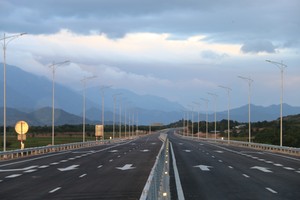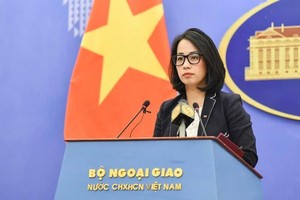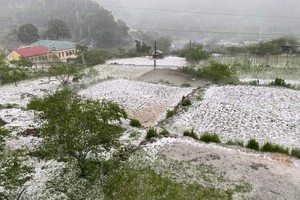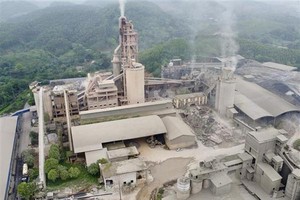
Environmental experts confidentially stated that Vietnam still has much room to approach green finance sources for its sustainable growth.
Energy expert Vu Tuong Anh from International Finance Corporation (IFC) shared that the 26th UN Climate Change Conference of the Parties (COP26) has created favorable conditions to increase capital for emerging markets. Green bonds reached US$354.2 billion at the end of the third quarter of 2021. The issuance of green bonds with green labels, society labels, and sustainability labels also reached $767.5 billion in the third 3 quarters of 2021.
This means great opportunities for emerging markets like Vietnam, whose enterprises can benefit from green project development, qualified carbon credits, and higher profits from these green projects, besides cost reduction from natural resource saving.
Take the resource efficiency project in the textile, garment and footwear industry of Vietnam, carried out by IFC, as a successful example of green credit. It promotes innovative approaches to boost resource efficiency in the garment and footwear supply chain via cooperation with global leading brand names to attract the participation of over 100 local leather, footwear and textile suppliers, who will then implement REF, use recycled energy and circular economy in order to sell qualified carbon credits in international voluntary carbon markets, increase competitiveness, and develop sustainably.
CEO Hoang Anh Dung of Investment and Trade Consulting Co. Ltd. (INTRACO) said that its member company - Sustainable Investment Promotion and Development JSC – signed a collaboration agreement with Citigroup to launch a project against climate change, including the two programs of ‘Green Kitchen in Vietnam’ and ‘Sanitary Water for Citizens’, to be carried out in all provinces and municipalities of Vietnam. This project is expected to create about 26.6. million voluntary carbon credits from the distribution of around 850,000 stoves and 364,000 water purifiers to households nationwide.
The stoves in the first program improve household energy efficiency by reducing combustible biomass necessary for daily activities at home like cooking and heating; while the water purifiers in the second one can eliminate the need to boil water for drinking. Both are certified to reduce carbon emissions, bringing large-scale social benefits to the community. This results in 7.9 million carbon credits (worth $10 each) to be sent from SIPCO to Citigroup from now to 2024, an action to protect the environment and increase company revenue simultaneously.
Similarly, Chairman of the Board of Director of Vu Phong Energy Group Pham Nam Phong informed that at the end of last year, his company signed a collaboration agreement with Construction No.47 JSC. and INTRACO for the project ‘Provide Hygienic Drinking Water Stations and other Greenhouse Gas Reduction Programs’, aiming at installing around 1,000 water purifier stations per year in various provinces, each with a capacity of 2,000l an hour. These stations help poor families to access sanitary water.
The project will then be expanded to the fields of afforestation and marine ecosystem protection, in hope of creating more carbon credits through the sustainable development mechanism, and thereby more revenues alongside with social benefits.
Chairman Phong admitted that this cooperation marks an important milestone to establish an ecosystem of businesses which are launching practical projects for the sake of social benefits and sustainable growth, especially in the aspect of water resource and water sanitation. The project’s long-term goal is to reduce greenhouse gas emission as committed by the Vietnamese Government at COP26 – achieving net zero emission by 2050.
























